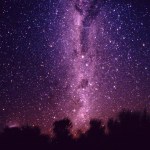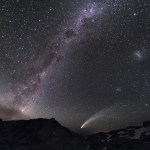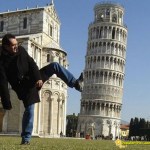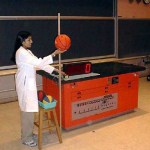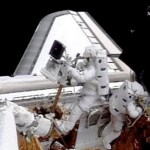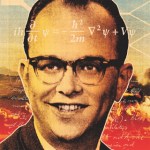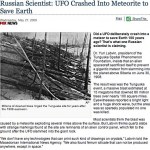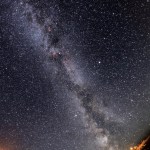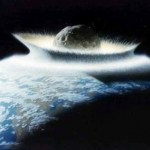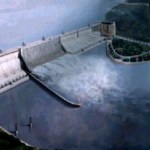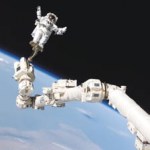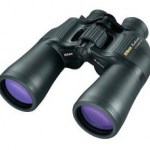
Amazing is an understatement when it comes to how much we've learned about our Universe in the last century. 90 years ago we confirmed general relativity, and got a whole new theory of gravity as a result. But, we still thought our Milky Way was the only galaxy in the Universe.
There were a few types of weird objects we knew of in great detail, such as the original 103 Messier objects. There were weird, spherical clusters of stars, like M2:
There were planetary nebulae, known to be the afterglows of dying or exploding stars, such as M27:
And then there were the much-debated "spiral nebulae…
100 years ago, the way we viewed our Universe was vastly different than the way we view it now. The night sky, with stars, planets, comets, asteroids, nebulae, and the Milky Way, was viewed to make up the entire contents of the Universe.
The Universe was static, governed by two laws only: Newton's Gravity and Maxwell's Electromagnetism. There were the first hints that the Universe was made up of quantum particles, such as the photoelectric effect, Rutherford's first hints at the existence of the nucleus, and Planck's view that energy was quantized. But other than that -- and Einstein's new…
This week at work, we're interviewing candidates for the job that I'm leaving. And one of the questions that came up was so simple and so fundamental to all that we do here that I thought I would ask it to you:
With all the problems in the world -- economic, political, social, and military -- what's the point of spending money on basic science? For example, why spend money looking for gravitational waves, the Higgs boson, or life on Mars?
Yes, these things are expensive. The total cost of LISA -- the space antenna that will look for gravitational waves -- is around 5 billion dollars; the cost…
One of the toughest things to do in science is to figure out -- of all the things that exist in the world -- is which ones are relevant to your problem. Take the Leaning Tower of Pisa, for instance.
Specifically, I wrote about Galileo's famous problem, where you take two cannonballs, one that's 10 lbs and one that's 1 lb, and drop them simultaneously off of the Leaning Tower of Pisa, about 55 meters up.
Perhaps you'll make the simplest model, and say that the only thing that matters is gravity. Perhaps you'll neglect air resistance, friction, the Coriolis forces, wind, horizontal motions,…
One of the simplest tricks you can use physics for is to figure out how high up you are. Either using a stopwatch or just by counting seconds, drop a dense object (e.g., not paper, a tissue, etc.) and figure out how long (in seconds) it takes from when you release the object to when it hits the ground. Take that number and square it. Multiply it by 16 to get your approximate height in feet, or multiply it by 5 to get your approximate height in meters.
What's remarkable is that all objects fall at the same rate. All of them. It doesn't matter what material they're made out of, how large or…
Nothing too crazy this weekend, folks. Why not? Believe it or not, because for the past 7 days, I've been on a road trip! We've been through Oregon, Washington, Idaho, Montana, North Dakota, Michigan, and Wisconsin, and we're now headed back through Iowa, South Dakota, and possibly Wyoming. The weather is gorgeous, the landscapes, skies, and adventures are all outstanding, and I have thoroughly enjoyed my week's "vacation." (Of course I've still been writing for you, too!)
So what can I give you to help you chill out this weekend? Well, I'd love to give you my favorite rendition of…
Ever wonder how much daylight you can gain or lose just by getting in your car and driving either West or East?
Here's how to figure it out. The Earth's circumference is about 25,000 miles (40,000 km) at the equator. So if you start out at sunrise and drive 1,000 miles (1,600 km) Westward during the daylight hours, you'll get almost an extra hour of daylight. On the other hand, if you go East, you'll lose that much. 1,000 miles is pretty much the maximum you can go in about 12 hours, and that's going pretty fast (about 80 mph, or 130 kph).
But there's a trick to stealing extra daylight.
Get…
Sometimes, it isn't just what's broken or how badly it's broken, but location can turn a trivial job into a virtually impossible one. Take the last shuttle repair mission to Hubble, for example.
This mission caused all sorts of records to be set, including the longest spacewalk ever! What caused the tremendous setback? A stuck bolt. No kidding. All-in-all, the servicing took five separate spacewalks of many hours each. A nice writeup of the difficulty of these repairs is given by Julianne here. Consider this: if the telescope were on the ground, all repairs could easily have been done in…
(It's just good, clean physics, I swear!) Last week, my buddy Lucas was watching a BBC documentary about petulant musician Mark Oliver Everett (of the Eels), and his quest to understand his father, the late physicist Hugh Everett.
Hugh Everett is famous as the discoverer of the many-worlds interpretation of quantum mechanics, which is a fascinating -- although speculative -- idea about how the Universe fundamentally works.
Imagine you have a wall with two slits -- very close together but distinct -- with a screen behind it. If I throw very small grains of sand at this wall, we can predict…
Looking back on this week, I had a post about astronomy with a wide-angle lens and about the Tunguska blast. For this weekend's music, I'm going to rob South Park and show you South Park Elementary's #1 TV show of all time:
And for your weekend amusement, I'll refer you back to my story on Tunguska, which is about one crazy Russian and his insistence that an alien spaceship saved the Earth from an asteroid. Since then -- on this site and in person -- the following theories have been advanced to me:
Nikola Tesla caused Tunguska with a secret, never-been-reproduced energy weapon,
The…
Just a short while ago, I showed you how the most powerful telescopes were able to gather incredible amounts of light from a tiny part of the sky, and peer deeper into the darkest regions of the Universe than ever before. But there's another way to do astronomy that's just as majestic: view the entire sky at once.
For an astronomer, this is easy; all you have to do is get a fisheye lens, and you can see an entire hemisphere with no problem. (The "up" hemisphere is much more interesting than the "down" one.) If you use it at night and take a time-lapse exposure, you can truly create some…
The website 3 quarks daily is having a contest for best blog post of the past year! The only rules? It must have been written since May 24, 2008. Check out the full contest rules here. You're here at scienceblogs, and you've got a chance to help pick the winner!
The best science blog post of the year contest is underway, and they will be accepting nominations by simply doing the following:
The nominating process is hereby declared open. Please nominate your favorite blog entry in the field of the natural and social sciences by placing the URL for the blogpost (the permalink) in the…
One of the scariest things that could happen to Earth is to be bombarded with an asteroid or comet, as the potential for damage is incredible.
Well, it turns out that we get hit by tiny "space pebbles" all the time. Every time you see a shooting star, like the one below, it's actually a very small rock, often the size of a mere grain of sand, streaking through the Earth's atmosphere and disintegrating. The heat of vaporization is so intense that the object glows brighter than the stars in the sky, and -- however briefly -- these grains of sand and dust can outshine even the planets.
A…
There are very few sources of truly clean energy out there. Coal, oil, natural gas, etc. all expel tremendous amounts of carbon dioxide into the atmosphere, something we know we need to stop doing very soon if we want our planet to be habitable to humans for very much longer. Biofuels, while not as harmful as fossil fuels, still emit tremendous amounts of carbon dioxide, and are not a long-term solution. Modern nuclear power produces low amounts of carbon dioxide, but significant amounts of radioactive waste, which isn't good for anybody! Even hydroelectric power has disastrous environmental…
One of the great things that comes along with warm weather is outdoor concerts! Click "play" below to hear one of the greatest live performances of All Along The Watchtower ever recorded.
Any idea who that is, rocking out on the guitar? Sounds a bit like Carlos Santana, doesn't it? Sounds talented like Hendrix, but the sound is too clean to be him. Who is it? Let's have you take a guess (before you scroll down).
Time for the answer? The guitarist who's rocking this song so hard is Jerry Garcia. Seriously, who knew the lead singer of the Grateful Dead was such a fantastic, talented…
It's Memorial Day weekend, and I won't be blogging over it, as I'm going to be enjoying my long weekend! (And I hope you are, too.) But I'd like to leave you with some reflections on our history of Space Exploration in this country. (This was originally posted last year.)
There are wonderful things going on in Space Exploration these days, and we know an unprecedented amount about our planet, solar system, galaxy, and Universe as a result of all the exploration that we've done. In fact, that's most of what I write about here. But another huge part of that exploration has been manned…
Regardless of where you work, one of the most nerve-wracking experiences can be your performance evaluations. Why is this nerve-wracking? Because no matter how talented and capable you are, and regardless of how good of a job you actually do, there are factors that you have absolutely no control over that can affect your evaluations. This can be a boss who wants to eliminate your job, a colleague who has a personality conflict with you, or a student who doesn't like the subject you teach.
Well, one of the nice things about being a teacher is that all of the students you teach get the…
When I was a teenager, my choice of food was basically determined by three criteria:
It needed to be ready in under 10 minutes.
It needed to have enough calories to make me not hungry anymore.
And it needed to be (marginally) edible.
That was really it. And so it won't surprise you to know that a portion of my diet at the time consisted of -- you guessed it -- Hot Pockets. And to be fair, they don't actually look so bad on the box.
For those of you who don't know, a Hot Pocket is a frozen Pop-tart filled -- instead of with fruit -- with nasty meat and sauce. You're supposed to stick it in…
One of the greatest challenges in all of evolutionary science is to figure out which species evolved into which over time. From our perspective, we would love to know how humans came to be, who our ancestors were, and what simpler animals gave rise to us.
Well, we don't know this right now. We know a good portion of the fossil records, but -- like anything that relies on fossils -- there are gaps, referred to colloquially as missing links. One of the fun things to track is cranial capacity over time, and we find that Homo Sapiens' huge brains are recent developments.
And, as you can also…
Every once in awhile, I'll get an email from someone curious about getting into amateur astronomy, but with no idea where to begin. More often than not, it's from someone with a crappy telescope who's trying to salvage some utility out of a bad purchase/gift.
The truth of the matter is that most telescopes either cost a lot for automated, easy-to-use features, or require a lot of time and effort to learn to use them properly.
But lets say you'd like to start exploring the skies, and need some help with where to begin. If you're like most people, and not sure how seriously you're going to be…
